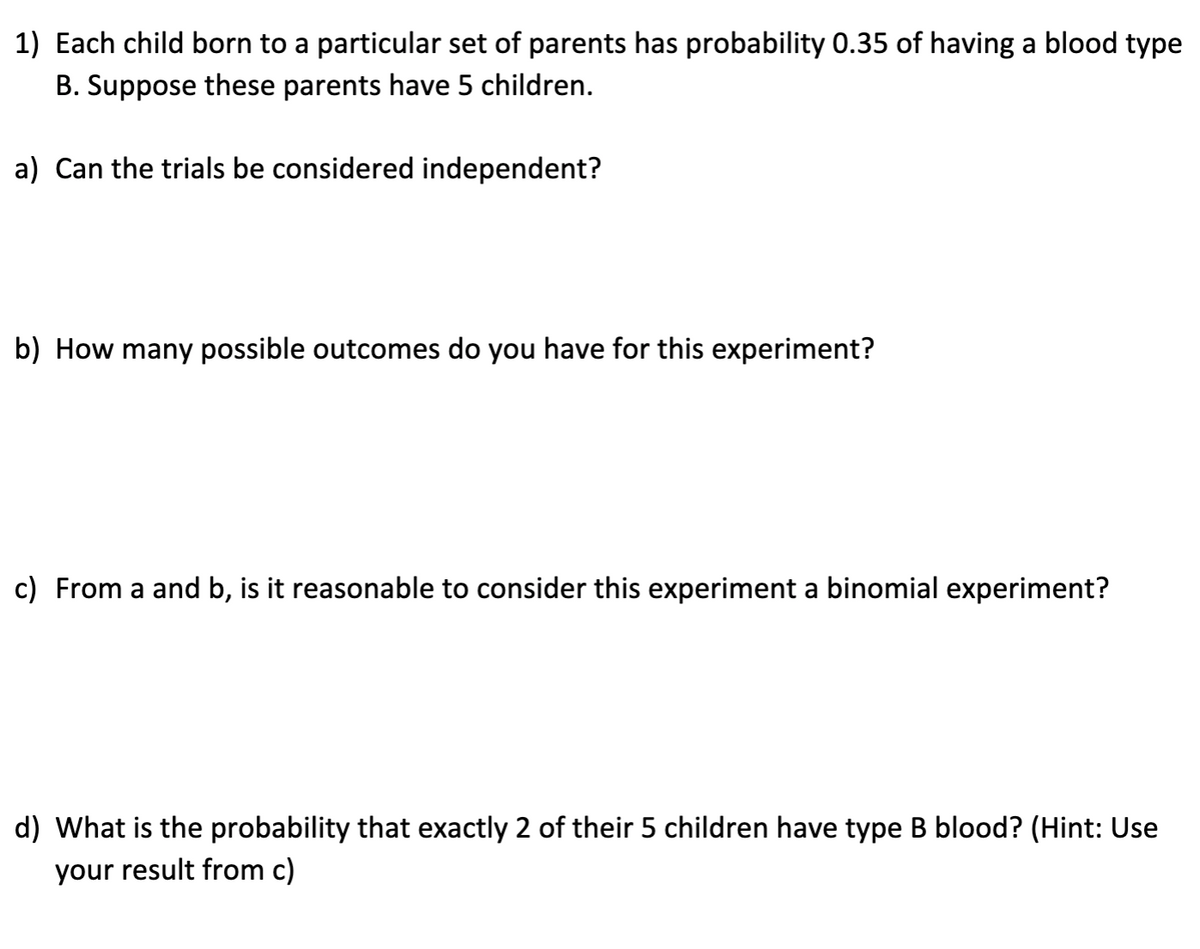1) Each child born to a particular set of parents has probability 0.35 of having a blood type B. Suppose these parents have 5 children. a) Can the trials be considered independent? b) How many possible outcomes do you have for this experiment? c) From a and b, is it reasonable to consider this experiment a binomial experiment? d) What is the probability that exactly 2 of their 5 children have type B blood? (Hint: Use your result from c)
1) Each child born to a particular set of parents has probability 0.35 of having a blood type B. Suppose these parents have 5 children. a) Can the trials be considered independent? b) How many possible outcomes do you have for this experiment? c) From a and b, is it reasonable to consider this experiment a binomial experiment? d) What is the probability that exactly 2 of their 5 children have type B blood? (Hint: Use your result from c)
Chapter8: Sequences, Series,and Probability
Section8.7: Probability
Problem 4ECP: Show that the probability of drawing a club at random from a standard deck of 52 playing cards is...
Related questions
Question
100%

Transcribed Image Text:1) Each child born to a particular set of parents has probability 0.35 of having a blood type
B. Suppose these parents have 5 children.
a) Can the trials be considered independent?
b) How many possible outcomes do you have for this experiment?
c) From a and b, is it reasonable to consider this experiment a binomial experiment?
d) What is the probability that exactly 2 of their 5 children have type B blood? (Hint: Use
your result from c)
Expert Solution
This question has been solved!
Explore an expertly crafted, step-by-step solution for a thorough understanding of key concepts.
This is a popular solution!
Trending now
This is a popular solution!
Step by step
Solved in 2 steps with 2 images

Recommended textbooks for you

